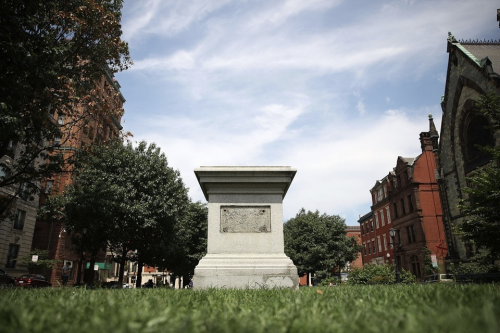memorialize
What do you choose to memorialize?

There is a keen difference between remembering and memorializing something. Most people would choose to memorialize the good moments in life: a birthday, a graduation, a birth. The bad moments are not forgotten, but are also not placed on a pedestal: a break-up, a job loss, a death. In every awful experienced moment, something may be cherished. Memorializing beauty out of death remembers that death, but does not give death the final say.
“Pass on before the ark of the Lord your God into the middle of the Jordan, and each of you take up a stone on his shoulder, one for each of the tribes of the Israelites, so that this may be a sign among you. When your children ask in time to come, ‘What do those stones mean to you?’ then you shall tell them that the waters of the Jordan were cut off in front of the ark of the covenant of the Lord. When it crossed over the Jordan, the waters of the Jordan were cut off. So these stones shall be to the Israelites a memorial forever.”
Joshua 4:5-7
As Joshua led the Israelites into their promised land, the memorialization was not of the Egyptian oppressors, or the 40 years of disobedience and wandering in the desert – it was about what God had done. Through the stones, it was not about forgetting their history, but telling the story of what their history meant.
Often the argument for preserving Confederate statues and allowing Confederate flags is that we should not forget our history. In Germany, Nazi buildings are extremely hard to come by — nearly all have been destroyed. Yet Germany certainly has not forgotten anything: There’s just a recognition that remembering and memorializing are two different things.
History indeed should not be forgotten. But the sins of our nation’s past must be interpreted – Robert E. Lee was no hero. What then with these monuments? An empty pedestal can give lessons to the past. A statute can be moved into a museum for proper contextualization. And new memorials can be built to memorialize the beautiful moments that have come out of the struggle for racial justice.